All Plenary sessions will be available as a livestream via a link that will be posted in the Congress mobile app and desktop app.
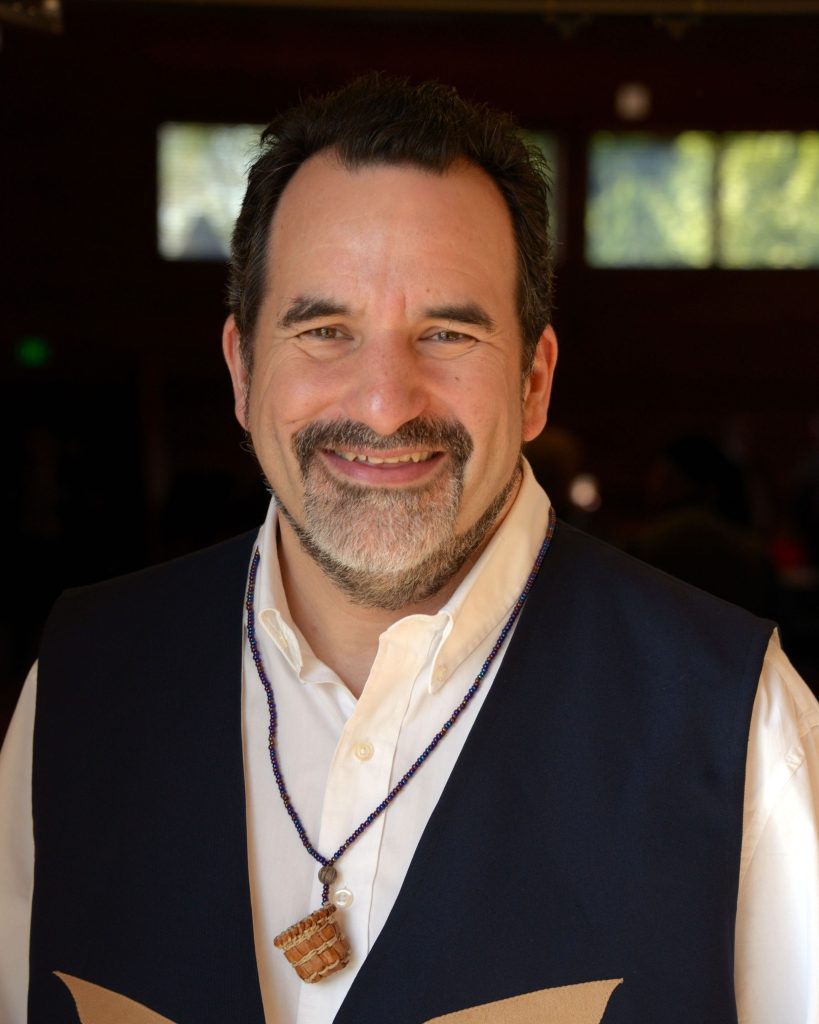
Leonard Forsman
Chair, Suquamish Tribe
- Monday, 4 March, 9:00 PST (GMT-8)
Leonard Forsman is Chair of the Suquamish Tribe in the Puget Sound area of Washington state. He has served on the Suquamish Tribal Council for more than 30 years, and as chair since 2005. He is also President of the Affiliated Tribes of Northwest Indians. He earned a bachelor’s degree in anthropology from the University of Washington and now serves on its Board of Regents. Forsman also serves on several boards including the Kitsap Regional Coordinating Council, Friends of Waterfront Seattle, and Tribal Leaders Congress on Education. Then-President Barack Obama appointed Forsman to the Advisory Council on Historic Preservation in 2013; he served as Vice Chair from 2016 to 2019. Forsman previously worked as an archaeologist and historian for a cultural resource consulting firm, and as Director of the Suquamish Museum. He grew up in Suquamish on the Port Madison Indian Reservation, where he currently lives with his wife, Jana Rice.
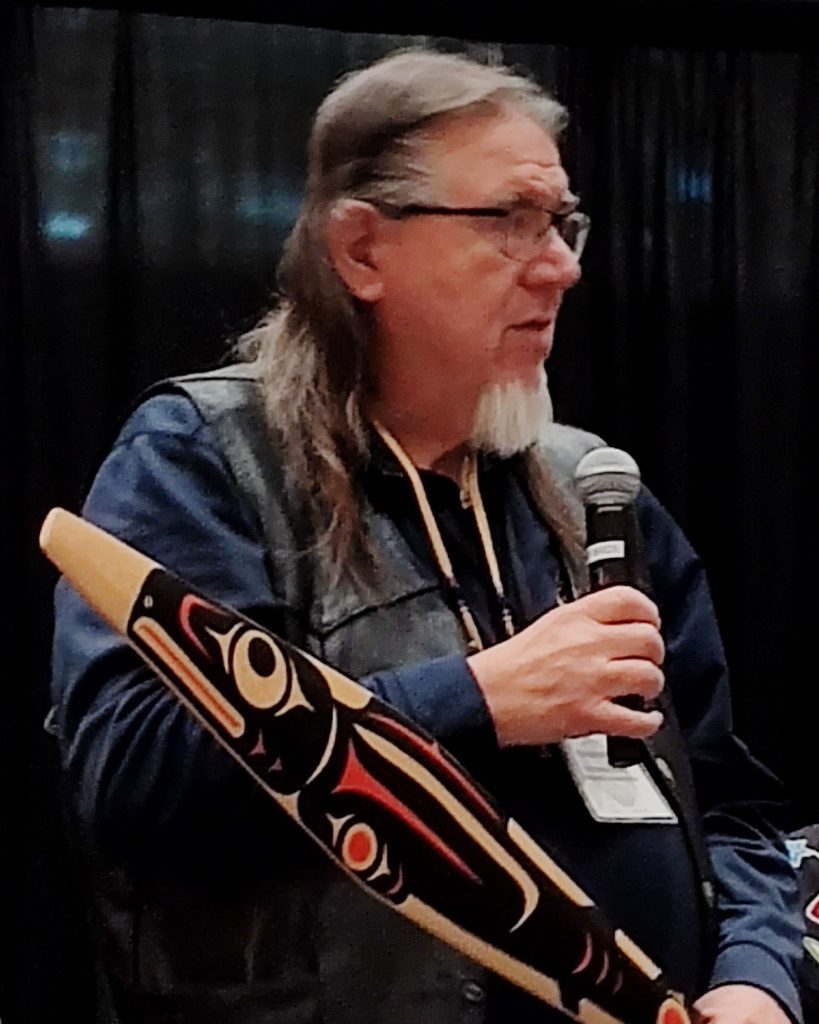
Ed Johnstone
Chair, Northwest Indian Fisheries Commission
- Monday, 4 March, 9:00 PST (GMT-8)
Ed Johnstone Jr., Quinault, is the current chair of the Northwest Indian Fisheries Commission. Ed was raised on Washington’s Pacific coast, the son of Ed Johnstone Sr. and Marguerite Law, and has deep family ties among the Quinault, Hoh, Klallam and Quileute people. He grew up fishing the coastal rivers with extended family and came of age as the Boldt Decision took effect, aiding his people in their fight for Treaty Rights and Tribal Sovereignty. His brother, Guy McMinds, worked with Billy Frank Jr., Hank Adams, Joe DeLaCruz and many others from Tribes across Washington to start the NWIFC in 1974. Ed was elected to the Quinault Tribal Council in 1996 and became Quinault Fisheries policy spokesman in 1999. He joined the NWIFC as a commissioner in 2000 representing the Quinault Indian Nation and served as treasurer from 2009-2021. Following the death of NWIFC commission chair Lorraine Loomis in 2021, Ed was elected interim chairman; he was reelected by his fellow commissioners in 2022. He is also a panelist on the Pacific Salmon Commission and the Intergovernmental Policy Council, tribal and state co-managers of the area that includes the Olympic Coast National Marine Sanctuary. Ed is committed to continuing his people’s tradition of sound stewardship of the environment, and ensuring the important work of protecting the salmon and the habitat that sustains all of us continues.
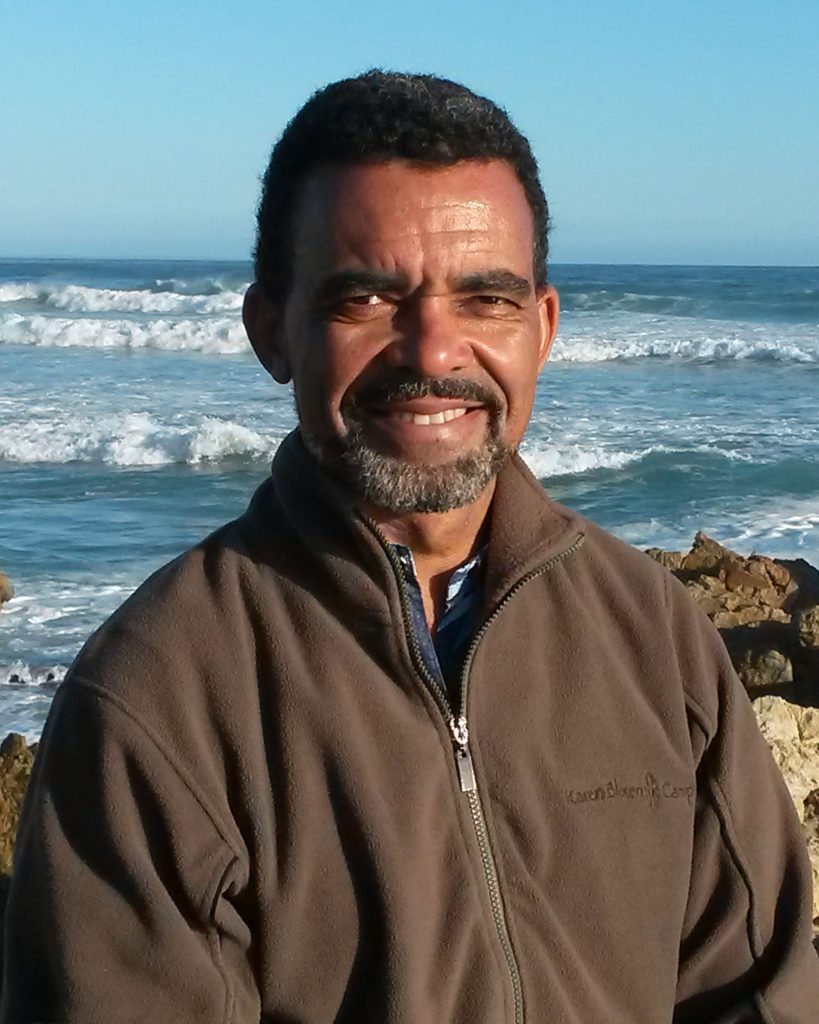
David Obura
Founding Director, CORDIO East Africa
- Monday, 4 March, 9:00 PST (GMT-8)
David Obura is a Founding Director of Coastal Oceans Research and Development – Indian Ocean (CORDIO) East Africa, a knowledge organization supporting sustainability of coral reef and marine systems in the Western Indian Ocean. CORDIO takes research to management and policy, builds capacity, and works with stakeholders, managers and policy makers. David’s primary research is on coral reef resilience, biogeography and climate change impacts, and turning now towards sustainability science using coral reefs as a model.
At the boundary between science and action, David works to integrate conservation and development across scales, in the context provided by global sustainability goals and targets. He works from the local scale, through fostering innovative action to promote sustainability, through regional scale alignment and integration, to global scales, bringing knowledge and local-regional practice into decision-making contexts. David serves on the Earth Commission, Co-Chairs the IPBES Nexus Assessment (2022-2024) and has been active in bringing sustainability science into discussions on the post-2020 Global Biodiversity Framework. David was awarded Kenya’s national honour, Moran of the Burning Spear in December 2021, and the Coral Reef Conservation Award of the International Coral Reef Society in 2022.
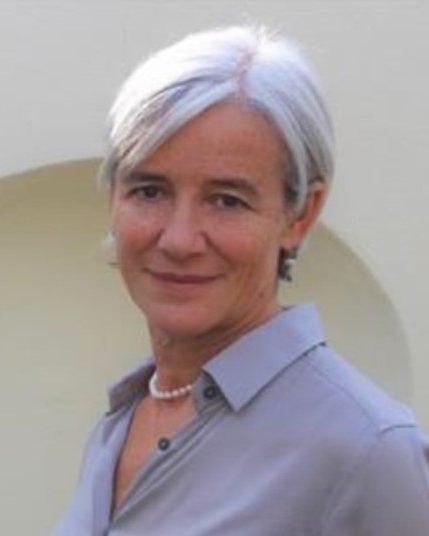
Vera Agostini
Deputy Director, Fisheries and Aquaculture Division at the UN Food and Agriculture Organization (FAO)
- Tuesday, 5 March, 11:00 PST (GMT-8)
Vera Agostini, Ph.D. is the Deputy Director of the Fisheries and Aquaculture Division at the United Nations, Food and Agriculture Organization (FAO) where she provides oversight, strategic leadership and technical support. From 2007-2017 Vera was with The Nature Conservancy, initially as Senior Scientist with the Global Oceans Team, and then as Director of Conservation and Director of Climate Adaptation. Dr. Agostini is a fisheries scientist by training, who has held positions across three sectors (non-governmental, government, and academia/educational) providing technical and strategic leadership across a range of multi-disciplinary efforts around the globe. Her experience ranges from comprehensive ecosystem research to broad policy and planning. She has provided technical and strategic leadership across a range of multi-disciplinary efforts and worked with coastal communities and artisanal fishers around the globe. Areas of focus include biodiversity mainstreaming in the fisheries sector, marine spatial planning and protected area network design, ecosystem based climate adaptation and disaster risk management, ecosystem approaches to fisheries, ecosystem services in pelagic environments, social resilience and small scale fisheries.
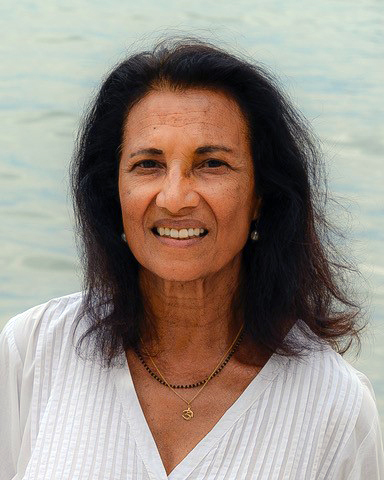
Shakuntala Thilsted
Director for Nutrition, Health and Food Security Impact Area Platform, CGIAR
- Tuesday, 5 March, 11:00 PST (GMT-8)
Shakuntala Haraksingh Thilsted is the CGIAR Director for Nutrition, Health and Food Security Impact Area Platform. She was previously the Global Lead for Nutrition and Public Health at WorldFish. She was awarded the 2021 World Food Prize for her ground-breaking research, critical insights, and landmark innovations in developing holistic, nutrition-sensitive approaches to aquatic food systems. She was awarded the 2021 Arrell Global Food Innovation Award for research innovation. She is the chair of the Scientific Advisory Committee (SAC) of the UN Food Systems Coordination Hub.
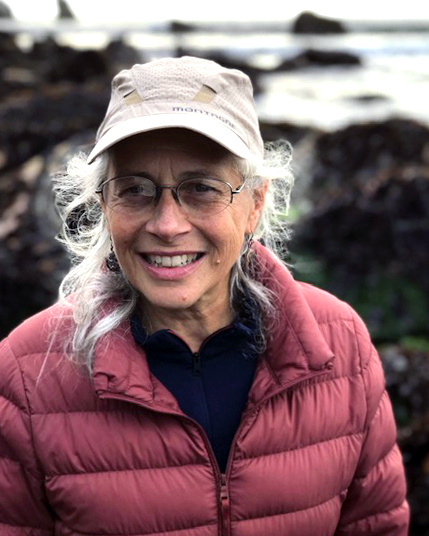
Ana Parma
Principal Scientist, Argentine National Scientific and Technological Research Council
- Wednesday, 6 March, 14:00 PST (GMT-8)
Ana M. Parma, Ph.D. is a Principal Scientist with the Argentine National Scientific and Technological Research Council, working at the National Patagonic Center in Puerto Madryn, Argentina. She earned her Ph.D. in Fisheries Science in 1989 from the University of Washington, and was an assessment scientist at the International Pacific Halibut Commission until 2000, when she returned to Argentina. Dr. Parma has worked on different aspects of fisheries modelling, assessment and management of diverse fisheries, ranging from artisanal shellfish fisheries to large-scale international tuna fisheries. Her research has focused on the evaluation and design of management strategies, attending to ecological and institutional dimensions, both in data-rich and in data and capacity-limited contexts.
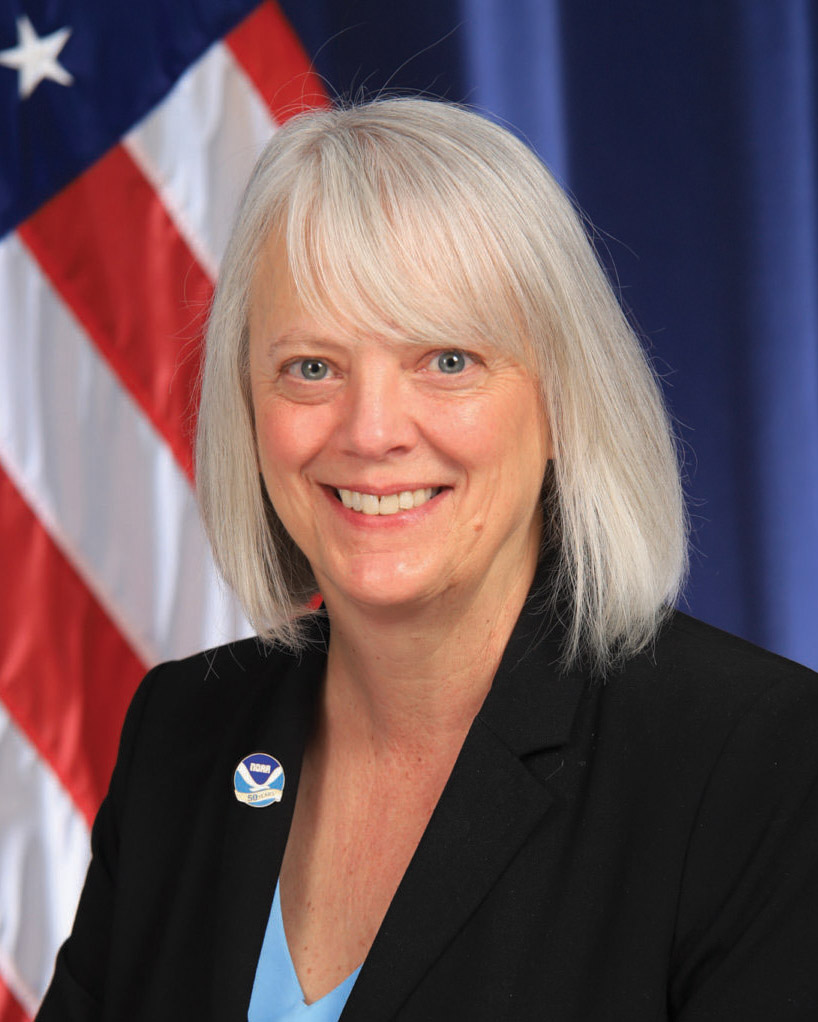
Janet Coit
Assistant Administrator, NOAA Fisheries
- Wednesday, 6 March, 14:00 PST (GMT-8)
Janet Coit is the Assistant Administrator for NOAA Fisheries, the US federal agency responsible for stewardship of living marine resources. She leads the agency in its mission to ensure the sustainability of U.S. fisheries, restore coastal and marine habitats, and recover protected marine species. Since being appointed in June 2021, Janet has spent much of her time connecting with people to better understand how NOAA Fisheries can support habitat conservation and the resilience of coastal communities and the seafood sector. Throughout Janet’s 35-year career in natural resource management, a common thread has been supporting the connections among policy, science, and people. Prior to her current position, Janet directed the Rhode Island Department of Environmental Management for more than ten years, where she worked to improve natural resource conservation, promote local food—including seafood—and address the climate crisis. She also served as state director for The Nature Conservancy of Rhode Island, worked for three U.S. Senators from New England and was counsel to the U.S. Senate Committee on the Environment and Public Works, where she advised on national and environmental policy. Janet is a magna cum laude graduate of Dartmouth College. She holds a law degree from Stanford Law School, where she was president of the Environmental Law Society and a member of the Environmental Law Journal.
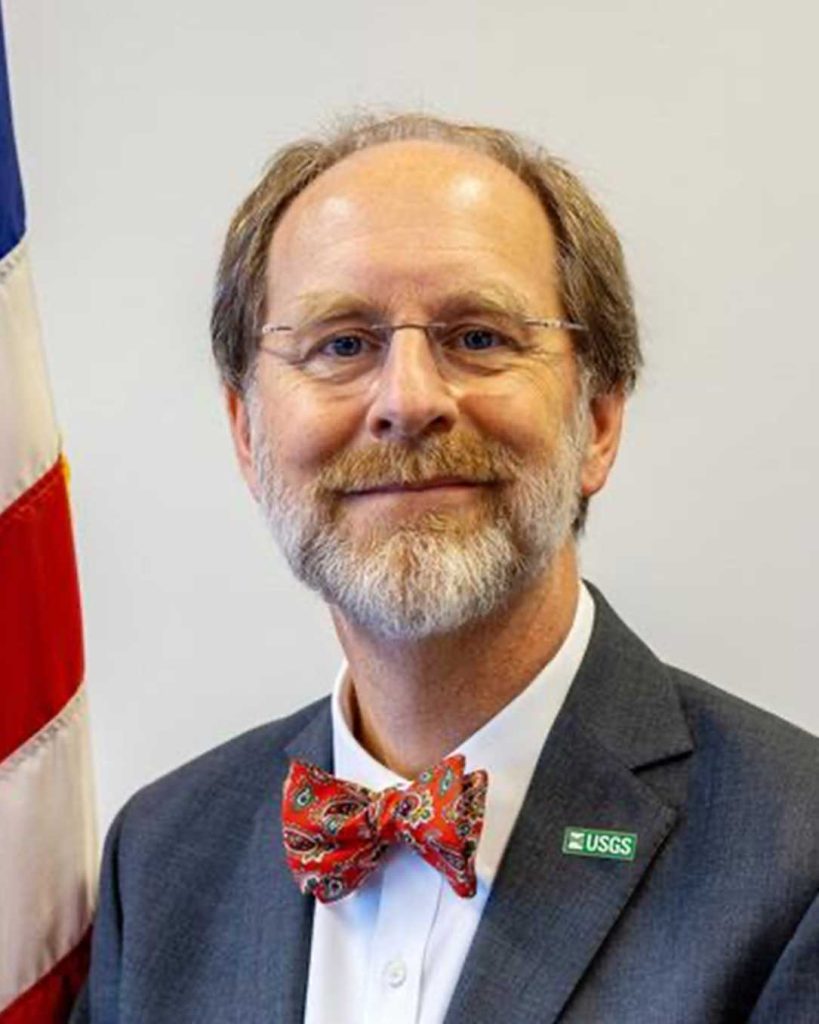
Dave Applegate
Director, U.S. Geological Survey
- Wednesday, 6 March, 14:00 PST (GMT-8)
David Applegate, Ph.D. is the 18th Director of the U.S. Geological Survey, sworn in by Secretary of the Interior Deb Haaland on Aug. 15, 2022. Prior to assuming his official role, he exercised the delegated authority of the USGS Director beginning on Jan. 20, 2021. He served as the Associate Director for Natural Hazards since 2011, leading USGS emergency response activities and overseeing the bureau’s geologic hazards and coastal and marine programs. He co-chairs the interagency Science for Disaster Reduction working group and chairs the interagency Civil Applications Committee. He is a fellow of the American Association for the Advancement of Science and the Geological Society of America and is a past president of the Geological Society of Washington. Applegate joined the USGS in 2004 as the first Senior Science Advisor for Earthquake and Geologic Hazards. Prior to that, he spent eight years with the American Geosciences Institute (AGI) federation of geoscience societies, where he directed science policy and served as the editor of Geotimes, AGI’s news magazine for the earth sciences. Applegate has also served with the U.S. Senate Committee on Energy and Natural Resources as the American Geophysical Union’s Congressional Science Fellow and as a professional staff member. He has taught at Johns Hopkins University and served as an adjunct professor at the University of Utah. Applegate has a B.S. in geology from Yale University and a Ph.D., also in geology, from the Massachusetts Institute of Technology.
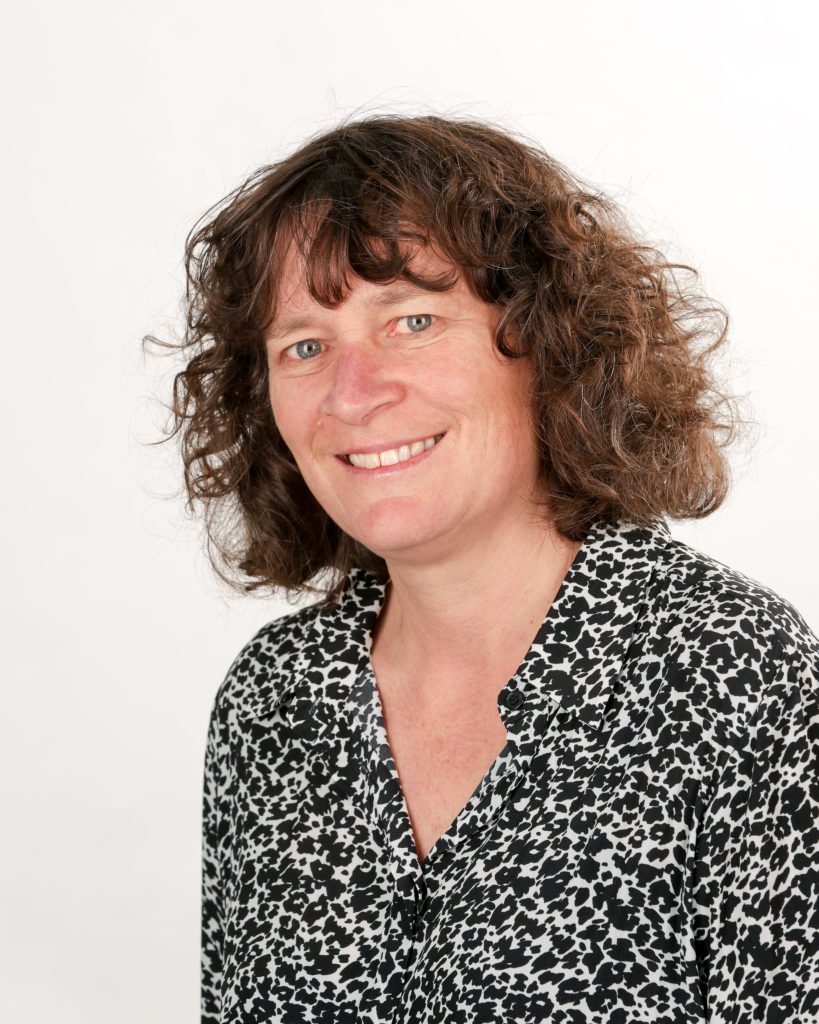
Bronwyn Gillanders
Professor, University of Adelaide, Australia
- Thursday, 7 March, 9:00 PST (GMT-8)
Professor Bronwyn Gillanders is based in the School of Biological Sciences at the University of Adelaide, Australia. She completed her BSc at the University of Canterbury (New Zealand), MSc at the University of Otago (NZ) and PhD at the University of Sydney (Australia). She has previously held three Australian Research Council Research Fellowships and is now a Faculty member at the University of Adelaide. Her research focuses on freshwater, estuarine and marine systems addressing fisheries, ecological and environmental questions.
